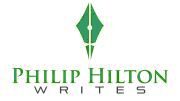When I write, I listen to music, as many writers do. However, I don’t simply turn on the radio or put on a favourite CD. I make my choice very carefully, let me tell you why.
I will refer to novel writing as an example in this short article; however, the process works just the same for nonfiction, short stories, poetry, articles, plays, screenplays and anything else I care to write.
Music is essential to most people, myself included. We only have to hear a song to be reminded of a lost love or a great holiday. Both music and lyrics can change our mood. When I approach a new writing project, it is music as a soundscape which is foremost in my mind. What period is my novel set in? This question is an easy one. I will assemble a playlist of suitable period mood music. My Harry Royle novels are set during World War Two. I have several playlists for these books, including original broadcasts and BBC radio plays and sketches. As well as popular hits of the time. In addition, I also have another playlist of French music and wartime broadcasts for my chapters set in France. Using these playlists, I can instantly alter my mood and emotions and fine-tune my writing to the time my book takes place.
A note about using period music with characters:
Just because a song was popular in the same period as the writing does not mean that a particular character would like it. Do you like every kind of music being played right now? An example of anything set during The Second World War is that older characters will think of most popular songs as a lot of noise’ and instead will prefer the softer strains of earlier music from their youth, such as the Twenties and Thirties hits.
If I’m writing something set in the 60s, nothing works so quickly as the Rolling Stones or The Beatles to change my mood. You can add to this by listening to interviews of your chosen period. Now, of course, there are period settings which predate musical recordings. But if you look around, you will find, as I have, re-creations of ancient music. If a story is set in the future, I might try ambient sounds or so-called ‘New Age music for a soundscape.
What is essential is to change my mood and my thoughts.
Character moods: Once I have a good choice of music, all of which would have been available to my character, I can look more closely. How old is my character? This first question will evoke specific ideas about the music they would have enjoyed in their younger days. What is their social position? That sounds like an odd question. Ask most people what the 60’s generation listened to. And you will most likely be given a list of the top pop groups and solo pop singers. What about the Jazz fans? These were the art school set and often the university crowd. These groups wanted something more intellectual than pop could offer. Think about Brian Epstein, the manager of The Beatles and his love of classical music. Characters are individuals, and this individuality includes musical taste.
Music as an essential character/story device:
Musical taste can be beneficial to convey character tastes and add tension. A wife who hates her husband playing heavy metal music from his youth. She constantly has to turn up radio 2 to drown out his noise. Add character to a parent/ child relationship by introducing rival types of music. Give a character a theme. Below is an example from one of my earlier stories, a horror/fantasy set in different time periods, from the Victorian age to 2011.
Example:
Ryan Donovan had played back last night’s kiss in his mind repeatedly. It had seemed good to him, and she seemed to enjoy it. He keyed the car’s ignition and wondered if he could consider their next meeting a first official date. He reached over and clicked on the radio. REM’s Everybody Hurts filled the car’s interior.
“Not this morning, mate.” The man reached over and turned it to CD, and hit play. This time the car was filled with vintage Sinatra, and Frank was waxing lyrical about the Young at heart. Ryan grinned.
“You said it, Blue eyes.” He sang along, enjoying the impromptu duet as the car moved swiftly through the morning traffic. He had judged the early commuter traffic well, and the road was now just a thin thread of late workers and those in no particular hurry. His mobile rang, and he quietly cursed his not putting it on the hands-free. Looking in the rear-view mirror for any unwanted police attention, he picked up the phone and pressed answer. As he did this, he turned down the volume on the CD.
At times having background music appear in a story can evoke a different atmosphere. It can also signal something different from the norm. Normality can be turned on its head by changing perceptions. The 2023 teenager blasting out Doris Day or the old lady being asked to turn down her Ibiza unplugged CD. These stand out and can add instant character to a scene. A cafe scene, with a song playing on the radio. This can set the stage for perfect normality. As you can see, music doesn’t have to be background sounds but can provide the impetus for your creative flow.

